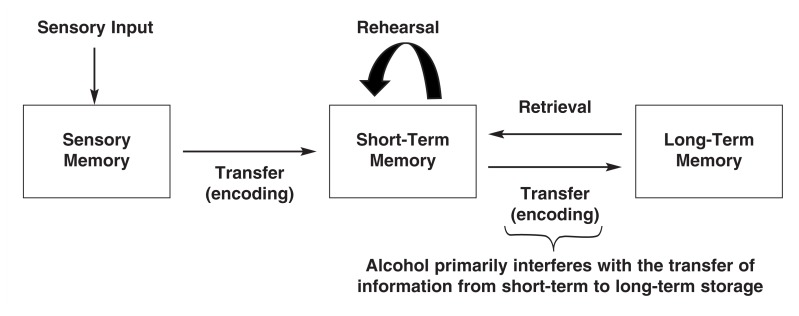Figure 1.
A general model of memory formation, storage, and retrieval based on the modal model of memory originally proposed by Atkinson and Shiffrin (1968). Alcohol seems to influence most stages of the process to some degree, but its primary effect appears to be on the transfer of information from short-term to long-term storage. Intoxicated subjects are typically able to recall information immediately after it is presented and even keep it active in short-term memory for 1 minute or more if they are not distracted. Subjects also are normally able to recall long-term memories formed before they became intoxicated; however, beginning with just one or two drinks, subjects begin to show impairments in the ability to transfer information into long-term storage. Under some circumstances, alcohol can impact this process so severely that, once sober again, subjects are unable to recall critical elements of events, or even entire events, that occurred while they were intoxicated. These impairments are known as blackouts.

